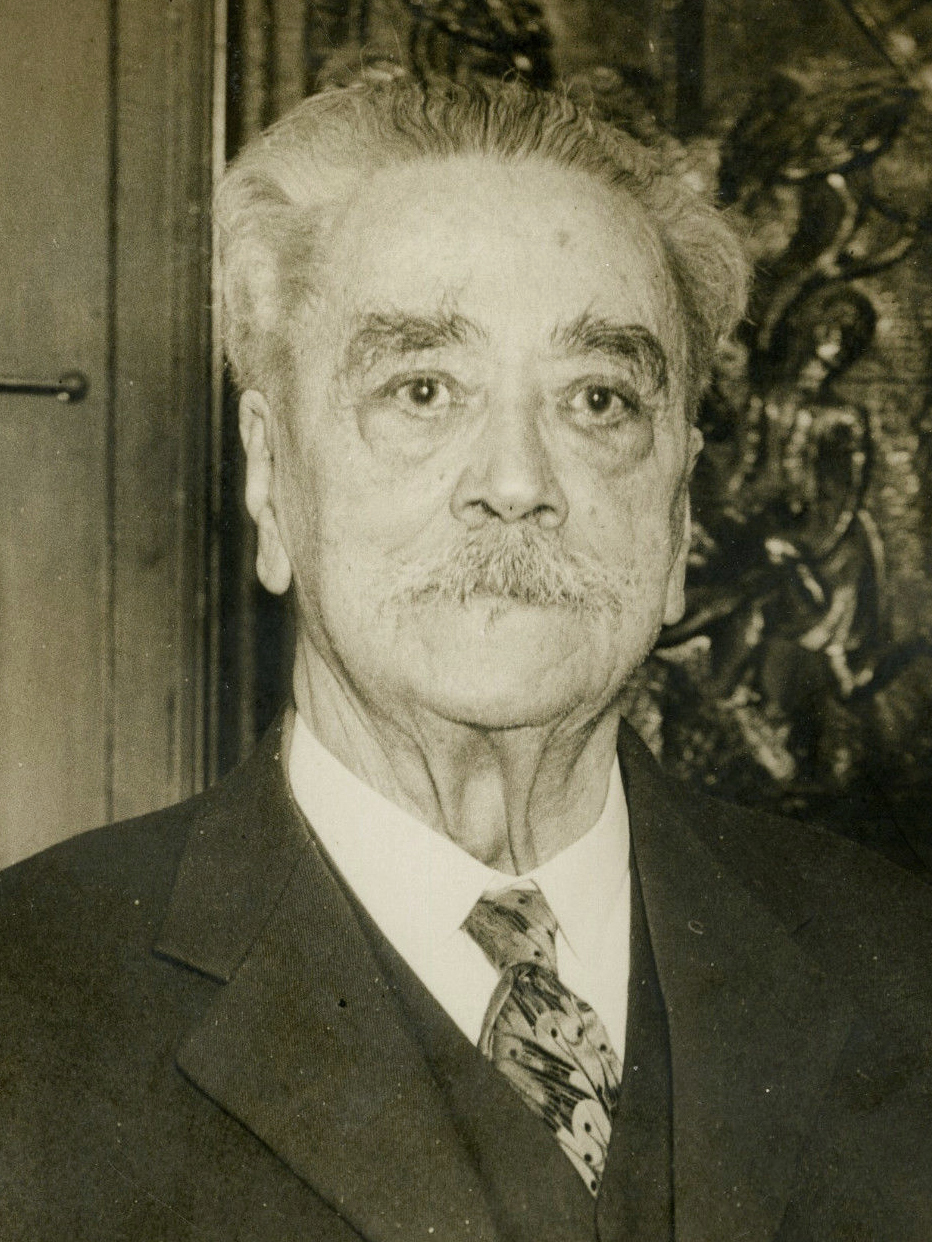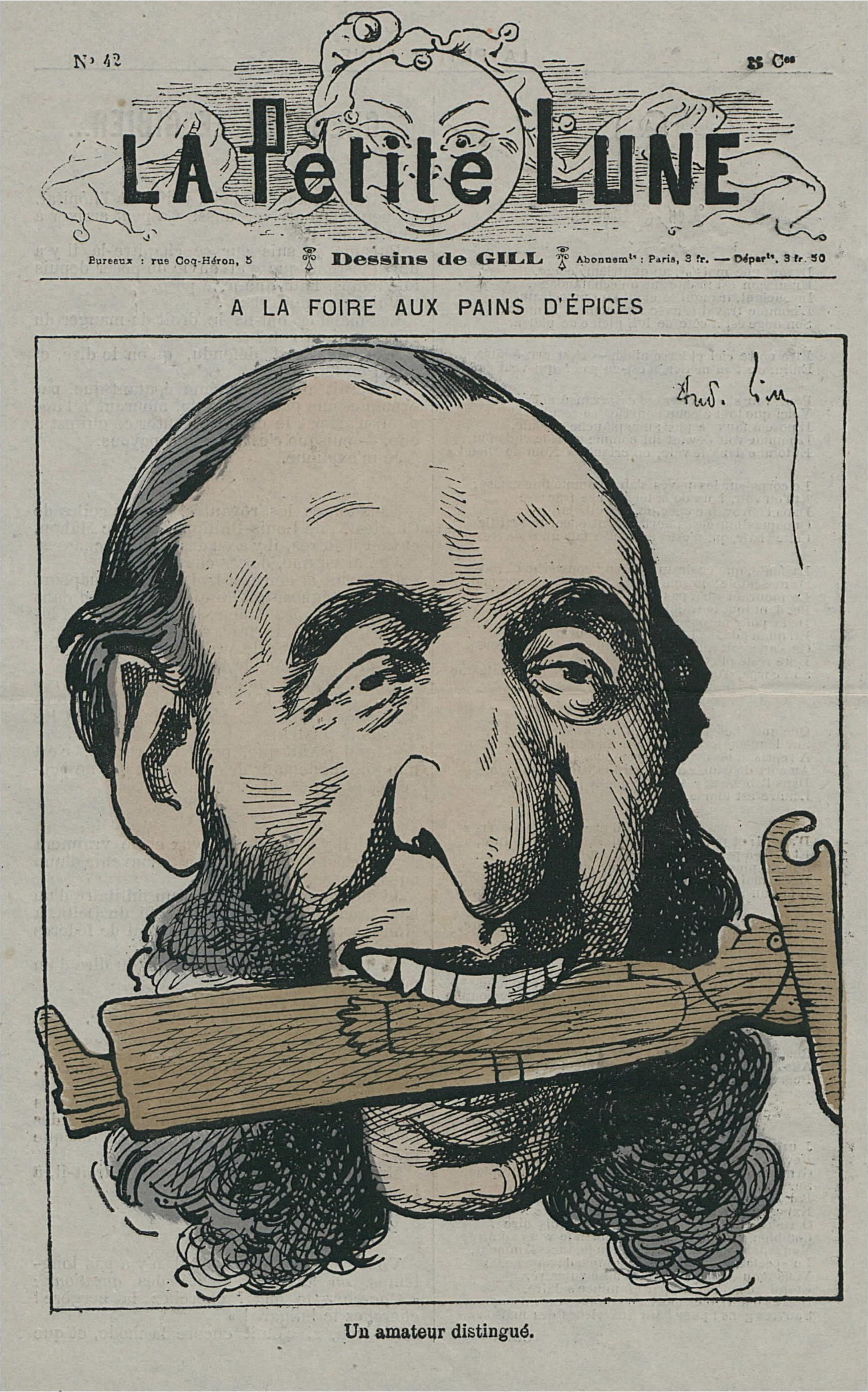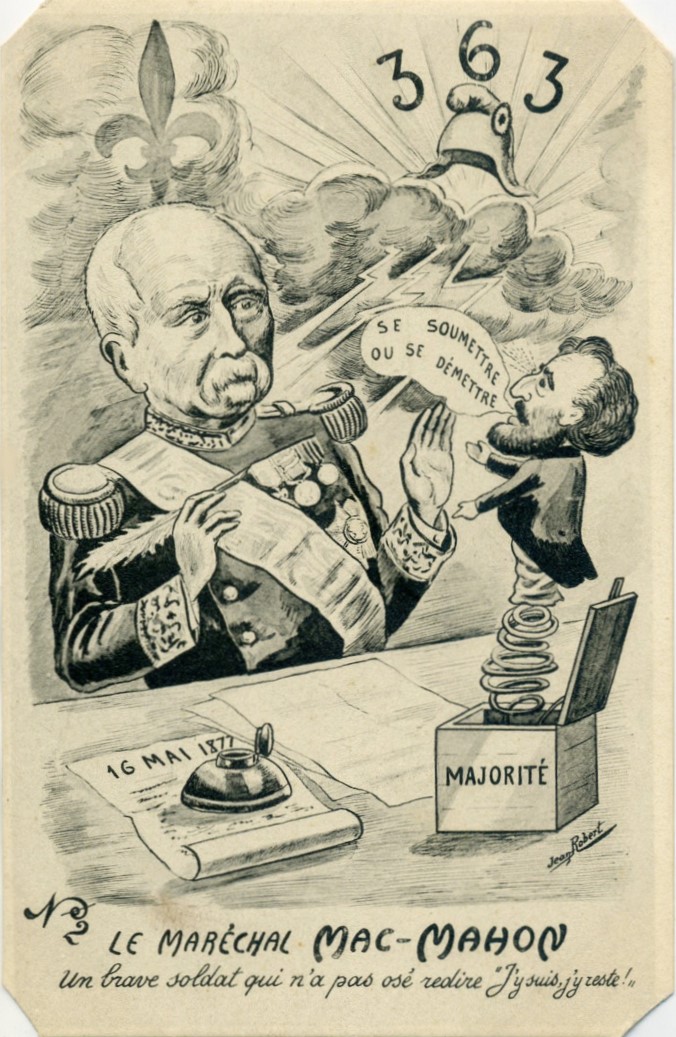|
Albert Grévy
Jules Philippe Louis Albert Grévy (23 August 1823 – 10 July 1899) was a French lawyer and politician. He represented Doubs in the National Assembly and then the Chamber of Deputies from 1871 to 1880. He was Governor-General of Algeria from 1879 to 1881, and a Senator for Life from 1880 until his death in 1899. Birth and family Albert Grévy was born on 23 August 1823 in Mont-sous-Vaudrey, Jura. His paternal grandfather, Nicolas Grévy (1736–1812), was the son of farmers in Aumont, Jura, Aumont, moved to Mont-sous-Vaudrey during the French Revolution and bought the property of ''la Grangerie''. He was a justice of the peace. His parents were François Hyacinthe Grevy (1773–1857) and Jeanne Gabrielle Planet (1782–1855). Albert's father had become chief of a battalion of volunteers in the Year II and had fought for the French First Republic, Republic until the French Consulate, Consulate. He operated a tile factory on his property. Albert was the younger brother of Jules G ... [...More Info...] [...Related Items...] OR: [Wikipedia] [Google] [Baidu] |
List Of French Governors Of Algeria
In 1830, in the days before the outbreak of the July Revolution against the Bourbon Restoration in France, Bourbon Restoration in France, the French conquest of Algeria, conquest of Algeria was initiated by Charles X as an attempt to increase his popularity amongst the French people. The Invasion of Algiers in 1830, invasion began on 5 July 1830. Afterwards Algeria would become a French Algeria, territory within the French colonial empire from 1830 to 1962, under a variety of governmental systems. List (Dates in italics indicate ''de facto'' continuation of office) French colony of Algeria (1830–1848) French departments of Algeria (1848–1962) Shortly after the July Monarchy of Louis Philippe I was overthrown in the French Revolution of 1848, Revolution of 1848, the new government of the French Second Republic, Second Republic ended Algeria's status as a colony and declared it in the French Constitution of 1848, 1848 Constitution an integral part of France. Three ... [...More Info...] [...Related Items...] OR: [Wikipedia] [Google] [Baidu] |
Second French Empire
The Second French Empire (; officially the French Empire, ), was the 18-year Empire, Imperial Bonapartist regime of Napoleon III from 14 January 1852 to 27 October 1870, between the French Second Republic, Second and the French Third Republic, Third Republic of France. Historians in the 1930s and 1940s often disparaged the Second Empire as a precursor of fascism. That interpretation is no longer widely held, and by the late 20th century they were giving it as an example of a modernising regime. Historians have generally given the Empire negative evaluations on its foreign policy, and somewhat more positive evaluations of domestic policies, especially after Napoleon III liberalised his rule after 1858. He promoted French business and exports. The greatest achievements included a grand History of rail transport in France#Success under the Second Empire, railway network that facilitated commerce and tied the nation together with Paris as its hub. This stimulated economic growth a ... [...More Info...] [...Related Items...] OR: [Wikipedia] [Google] [Baidu] |
Constantine Province
Constantine ( ar, ولاية قسنطينة) is one of the 58 provinces (''wilayas'') of Algeria, whose capital is the city of the same name. History In 1984 Mila Province Mila ( ar, ولاية ميلة, link=no, ) is a province (''wilayah'') of Algeria, whose capital is Mila. Other localities include Teleghma, Grarem Gouga, Hamala and Rouached. History The province was created from parts of Constantine Province ... was carved out of its territory. Administrative divisions The province is divided into 6 districts or ''daïra'', which are subdivided into 12 ''communes'' or municipalities. List of districts References Provinces of Algeria States and territories established in 1974 {{ConstantineDZ-geo-stub ... [...More Info...] [...Related Items...] OR: [Wikipedia] [Google] [Baidu] |
Gaston Thomson
Gaston Thomson was a French politician born 29 January 1848 in Oran, French Algeria; died 14 May 1932 at Bône (Algeria). He was a member of the French Chamber of Deputies for the Department of Constantine for fifty years and three months. He was Minister of Commerce, Industry, Posts and Telegraphs from 13 June 1914 to 29 October 1915. As Minister of the Navy in the Cabinets of Clemenceau and Rouvier, his tenure saw the construction of numerous warships, cruisers and battleships, improving the power of the French Navy. On 6 June 1897 he fought a duel A duel is an arranged engagement in combat between two people, with matched weapons, in accordance with agreed-upon Code duello, rules. During the 17th and 18th centuries (and earlier), duels were mostly single combats fought with swords (the r ... with fellow Deputy Leon Mirman, a Radical Socialist, in which Mirman was slightly wounded in the forearm. The duel grew out of an article written by the latter attacking Thomso ... [...More Info...] [...Related Items...] OR: [Wikipedia] [Google] [Baidu] |
Interpellation (politics)
Interpellation is a formal request of a parliament to the respective government. It is distinguished from question time in that it often involves a separate procedure. In many parliaments, each individual member of parliament has the right to submit questions (possibly a limited amount during a certain period) to a member of the government. The respective minister or secretary is then required to respond and to justify government policy. Interpellation thus allows the parliament to supervise the government's activity. In this sense, it is closer to a motion of censure. In English, the parliamentary questioning sense of "interpellation" dates from the late 19th century. It has been adopted from French constitutional discourse. In some countries, for example Finland, Slovenia and Lithuania, interpellations are more or less synonymous with a motion of no confidence because they are automatically connected with a vote of confidence and their express purpose is to determine the con ... [...More Info...] [...Related Items...] OR: [Wikipedia] [Google] [Baidu] |
Oran Province
Oran Province ( ar, ولاية وهران, ) is a province (''wilayah'') in Algeria whose seat is the city of the same name. Geography It is located in the northwestern part of the country. Its population is 1,584,607 and it covers a total area of 2,114 km². The province is bordered to the east by Mostaganem, to the southeast by Mascara, to the southwest by Sidi Bel Abbes, and to the west by Aïn Témouchent Province. History The province was formed from the former French department of Oran, which was maintained after independence and was transformed into a ''wilaya'' (province) by the ordnance of 1968. It inherited its current structure after the re-organization of 1974, when it lost its western and southern parts in favor of the creation of Sidi Bel Abbès Province. Administrative divisions As of 1984, the province is divided into 9 districts (''daïras''), which are further divided into 26 ''communes'' or municipalities. Districts # Aïn El Turk # Arzew # Bethiou ... [...More Info...] [...Related Items...] OR: [Wikipedia] [Google] [Baidu] |
Batna Province
Batna Province ( ar, ولاية باتنة, Latn, ar, Wilāyat Bātnah) is a province of Algeria, in the region of Aurès. The capital is Batna. Localities in this province include N'Gaous, Merouana and Timgad. Belezma National Park is in the Belezma Range area of the province. Administrative divisions It is made up of 21 districts and 61 municipalities. The districts are: # Aïn Djasser # Aïn Touta # Arris # Barika # Batna # Bouzina # Chemora # Djezzar # El Madher # Ichmoul # Menaâ # Merouana # N'Gaous # Ouled Si Slimane # Ras El Aioun # Seggana # Seriana # T'Kout # Tazoult # Théniet El Abed # Timgad The municipalities are: # Aïn Djasser # Aïn Touta # Aïn Yagout # Amantan # Amdoukal # Arris # N'Gaous # Batna # Ben Foudhala El Hakania # Bitam # Boulhilat # Boumagueur # Boumia # Bouzina # Djerma # Djezzar # Draa Etine # El Hassi # El Madher # Fesdis # Foum Toub # Ghassira # Chemora # Gosbat # Guigba # Hayat # Hidoussa # Ichmoul # Inough ... [...More Info...] [...Related Items...] OR: [Wikipedia] [Google] [Baidu] |
Kabyle People
The Kabyle people ( kab, Izwawen or ''Leqbayel'' or ''Iqbayliyen'', ) are a Berber ethnic group indigenous to Kabylia in the north of Algeria, spread across the Atlas Mountains, east of Algiers. They represent the largest Berber-speaking population of Algeria and the second largest in North Africa. Many of the Kabyles have emigrated from Algeria, influenced by factors such as the Algerian Civil War, cultural repression by the central Algerian government, and overall industrial decline. Their diaspora has resulted in Kabyle people living in numerous countries. Large populations of Kabyle people settled in France and, to a lesser extent, Canada (mainly Québec) and United States. The Kabyle people speak Kabyle, a Berber language. Since the Berber Spring of 1980, they have been at the forefront of the fight for the official recognition of Berber languages in Algeria. History Fatimid Caliphate Between 902 and 909 the Fatimid state had been founded by the Kutama Berbers from L ... [...More Info...] [...Related Items...] OR: [Wikipedia] [Google] [Baidu] |
The Arrival In Algiers Of Albert Grevy, Governor General Of Algeria, April 27, 1879
''The'' () is a grammatical article in English, denoting persons or things that are already or about to be mentioned, under discussion, implied or otherwise presumed familiar to listeners, readers, or speakers. It is the definite article in English. ''The'' is the most frequently used word in the English language; studies and analyses of texts have found it to account for seven percent of all printed English-language words. It is derived from gendered articles in Old English which combined in Middle English and now has a single form used with nouns of any gender. The word can be used with both singular and plural nouns, and with a noun that starts with any letter. This is different from many other languages, which have different forms of the definite article for different genders or numbers. Pronunciation In most dialects, "the" is pronounced as (with the voiced dental fricative followed by a schwa) when followed by a consonant sound, and as (homophone of the archaic pr ... [...More Info...] [...Related Items...] OR: [Wikipedia] [Google] [Baidu] |
Jules Ferry
Jules François Camille Ferry (; 5 April 183217 March 1893) was a French statesman and republican philosopher. He was one of the leaders of the Moderate Republicans and served as Prime Minister of France from 1880 to 1881 and 1883 to 1885. He was a promoter of laicism and colonial expansion. Under the Third Republic, Ferry made primary education free and compulsory through several new laws. However, he was forced to resign following the Sino-French War in 1885 due to his unpopularity and public opinion against the war. Biography Early life and family Ferry was born Saint-Dié, in the Vosges department, to Charles-Édouard Ferry, a lawyer from a family that had established itself in Saint-Dié as bellmakers, and Adélaïde Jamelet. His paternal grandfather, François-Joseph Ferry, was mayor of Saint-Dié through the Consulate and the First Empire. He studied law, and was called to the bar at Paris in 1854, but soon went into politics, contributing to various newspapers, ... [...More Info...] [...Related Items...] OR: [Wikipedia] [Google] [Baidu] |
Oscar Bardi De Fourtou
Marie François Oscar Bardi de Fourtou (3 January 1836 – 6 December 1897) was a French politician. Born into a bourgeois family, he served as Minister of Transport from 7 December 1872 to 18 May 1873. He also served as Minister of Interior and Minister of Public Instruction, in which he "carried out aggressively conservative policies by dismissing certain liberal professors and re-establishing censorship." Biography There he proved a useful adherent to Thiers, who made him minister of public works in December 1872. He was minister of religion in the cabinet of May 18–24, 1873, being the only member of the Right included by Thiers in that short-lived ministry. As minister of education, religion and the fine arts in the reconstructed cabinet of the duc de Broglie he had used his administrative powers to further clerical ends, and as minister of the interior in de Broglie's cabinet in 1877 he resumed the administrative methods of the Second French Empire. With a well-known Bo ... [...More Info...] [...Related Items...] OR: [Wikipedia] [Google] [Baidu] |
16 May 1877 Crisis
The 16 May 1877 crisis (french: link=no, Crise du seize mai) was a constitutional crisis in the French Third Republic concerning the distribution of power between the president and the legislature. When the royalist president Patrice MacMahon dismissed the Opportunist Republican prime minister Jules Simon, the parliament on 16 May 1877 refused to support the new government and was dissolved by the president. New elections resulted in the royalists increasing their seat totals, but nonetheless resulted in a majority for the Republicans. Thus, the interpretation of the 1875 Constitution as a parliamentary system prevailed over a presidential system. The crisis ultimately sealed the defeat of the royalist movement, and was instrumental in creating the conditions of the longevity of the Third Republic. Background Following the Franco-Prussian War, the elections for the National Assembly had brought about a monarchist majority, divided into Legitimists and Orleanists, which co ... [...More Info...] [...Related Items...] OR: [Wikipedia] [Google] [Baidu] |


.png)


